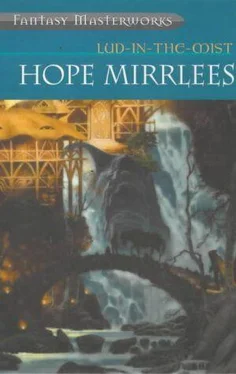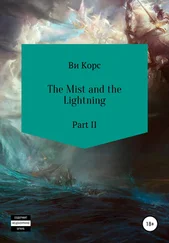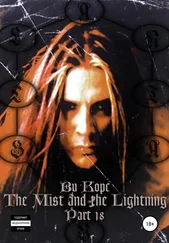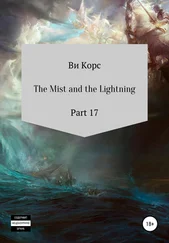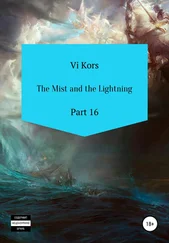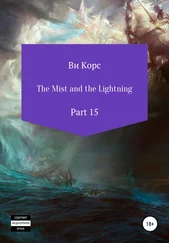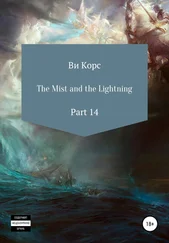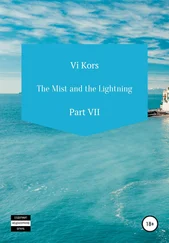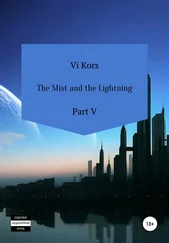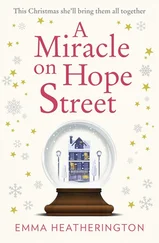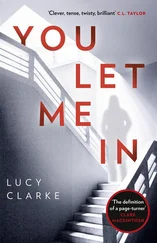As Master Nathaniel listened, he knew that other people would have heard other tunes - whatever tunes through the milkman's whistle, or the cracked fiddle of a street musician, or the voices of young sparks returning from the tavern at midnight, the Morning Stars may have happened to sing in their own particular infancy.
Oh, you little charmer with your pretty puce bow,
I'll tell mamma if you carry on so!
Round and round whirled the tarnished horses and chariots with their one pathetic little rider; round and round trudged the pony - the little dusty, prosaic pony.
Master Nathaniel rubbed his eyes and looked round; he felt as if after a dive he were slowly rising to the surface of the water. The fair seemed to be coming alive - the silence had changed into a low murmur. And now it was swelling into the mingled din of chattering voices, lowing cows, grunting pigs, blasts from tin trumpets, hoarse voices of cheapjacks praising their wares - all the noises, in short, that one connects with an ordinary fair.
He sauntered away from the merry-go-round and mingled with the crowd. All the stall-keepers were doing a brisk trade, but, above all, the market gardeners - their stalls were simply thronged.
But, lo and behold! the fruit that they were selling was of the kind he had seen in the mysterious room of the Guildhall, and concealed inside the case of his grandfather's clock - it was fairy fruit; but the knowledge brought no sense of moral condemnation.
Suddenly he realized that his throat was parched with thirst and that nothing would slake it but one of these translucent globes.
The wizened old woman who was selling them cried out to him coaxingly, "Three for a penny, sir! Or, for you, I'll make it four for a penny - for the sake of your hazel eyes, lovey! You'll find them as grateful as dew to the flowers - four for a penny, pretty master. Don't say no!"
But he had the curious feeling that one sometimes has in dreams, namely, that he himself was inventing what was happening to him, and could make it end as he chose.
"Yes," he said to himself, "I am telling myself one of Hempie's old stories, about a youngest son who has been warned against eating anything offered to him by strangers, so, of course, I shall not touch it."
So with a curt "No thank'ee, nothing doing today," he contemptuously turned his back on the old woman and her fruit.
But whose was that shrill voice? Probably that of some cheapjack whose patter or whose wares, to judge from the closely-packed throng hiding him from view, had some particularly attractive quality. The voice sounded vaguely familiar, and, his curiosity aroused, Master Nathaniel joined the crowd of spectators.
He could discern nothing but the top of a red head, but the patter was audible: "Now's your chance, gentlemen! Beauty doesn't keep, but rots like apples. Apple-shies! Four points if you hit her on the breast, six if you hit her on the mouth, and he who first gets twenty points wins the maid. Don't fight shy of the apple-shies! Apples and beauty do not keep - there's a worm in both. Step up, step up, gentlemen!"
Yes, he had heard that voice before. He began to shoulder his way through the crowd. It proved curiously yielding, and he had no difficulty in reaching the centre of attraction, a wooden platform on which gesticulated, grimaced and pirouetted… who but his rascally groom Willy Wisp, dressed as a harlequin. But Willy Wisp was not the strangest part of the spectacle. Out of the platform grew an apple tree, and tied to it was his own daughter, Prunella, while grouped around her in various attitudes of woe were the other Crabapple Blossoms.
Suddenly Master Nathaniel felt convinced that this was not merely a story he was inventing himself, but, as well, it was a dream - a grotesque, illogical, synthesis of scraps of reality, to which he could add what elements he chose.
"What's happening?" he asked his neighbour.
But he knew the answer - Willy Wisp was selling the girls to the highest bidder, to labour in the fields of gillyflowers.
"But you have no right to do this!" he cried out in a loud angry voice, "no right whatever. This is not Fairyland - it is only the Elfin Marches. They cannot be sold until they have crossed over into Fairyland - I say they cannot be sold ."
All round him he heard awed whispers, "It is Chanticleer - Chanticleer the dreamer, who has never tasted fruit." Then he found himself giving a learned dissertation on the law of property, as observed in the Elfin Marches. The crowd listened to him in respectful silence. Even Willy Wisp was listening, and the Crabapple Blossoms gazed at him with inexpressible gratitude.
With what seemed to him a superbly eloquent peroration he brought his discourse to an end. Prunella stretched out her arms to him, crying, "Father, your have saved us! You and the Law."
"You and the Law! You and the Law!" echoed the other Crabapple Blossoms.
"Chanticleer and the Law! Chanticleer and the Law!" shouted the crowd.
_ _ _ _
The fair had vanished. He was in a strange town, and was one of a great crowd of people all hurrying in the same direction.
"They are looking for the bleeding corpse," whispered the invisible cicerone, and the words filled Master Nathaniel with an unspeakable horror.
Then the crowd vanished, leaving him alone in a street as silent as the grave. He pressed forward, for he knew that he was looking for something; but what it was he had forgotten. At every street corner he came on a dead man, guarded by a stone beggar with a face like the herm in the Gibberty's orchard. He was almost choked by the horror of it. The terror became articulate: "Supposing one of the corpses should turn out to be that little lonely boy on the merry-go-round!"
This possibility filled him with an indescribable anguish.
Suddenly he remembered about Ranulph. Ranulph had gone to the country from which there is no return.
But he was going to follow him there and fetch him back. Nothing would stop him - he would push, if necessary, through fold after fold of dreams until he reached their heart.
He bent down and touched one of the corpses. It was warm, and it moved. As he touched it he realized that he had incurred the danger of contamination from some mysterious disease.
"But it isn't real, it isn't real," he muttered. "I'm inventing it all myself. And so, whatever happens, I shan't mind, because it isn't real ."
It was growing dark. He knew that he was being followed by one of the stone beggars, who had turned into a four-footed animal called Portunus. In one sense the animal was a protection, in another a menace, and he knew that in summoning him he must be very careful to use the correct ritual formulary.
He had reached a square, on one side of which was a huge building with a domed roof. Light streamed from it through a great window of stained glass, on which was depicted a blue warrior fighting with a red dragon… no, it was not a stained glass window but merely the reflection on the white walls of the building from a house in complete darkness in the opposite side of the square, inhabited by creatures made of red lacquer. He knew that they were expecting him to call, because they believed that he was courting one of them.
"What else could bring him here save all this lovely spawn?" said a voice at his elbow.
He looked round - suddenly the streets were pullulating with strange semi-human fauna: tiny green men, the wax figures of his parents from Hempie's chimney-piece, grimacing greybeards with lovely children gamboling round them dressed in beetles' shards.
Now they were dancing, some slow old-fashioned dance… in and out, in and out. Why, they were only figures on a piece of tapestry flapping in the wind!
Once more he felt his horse beneath him. But what were these little pattering footsteps behind him? He turned uneasily in his saddle, to discover that it was nothing but a gust of wind rustling a little eddy of dead leaves.
Читать дальше
